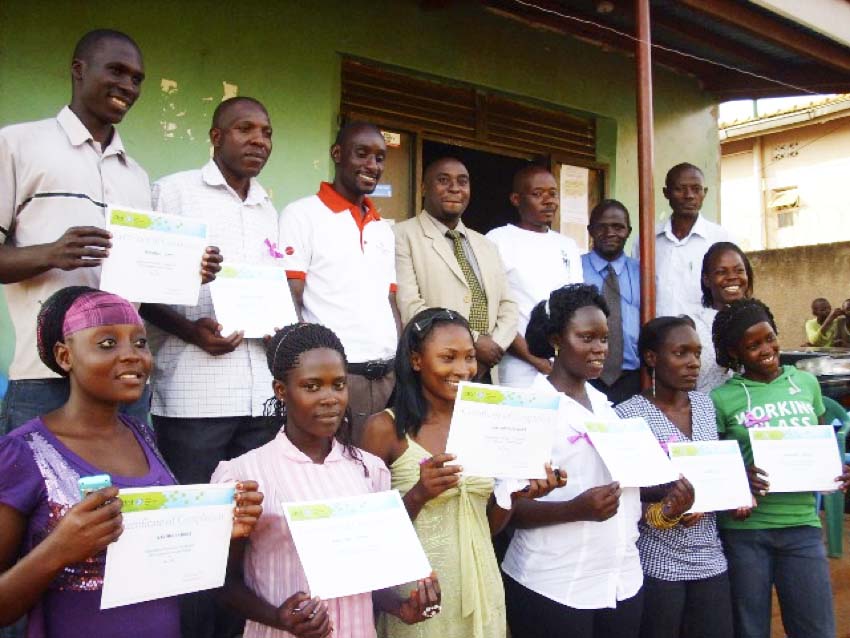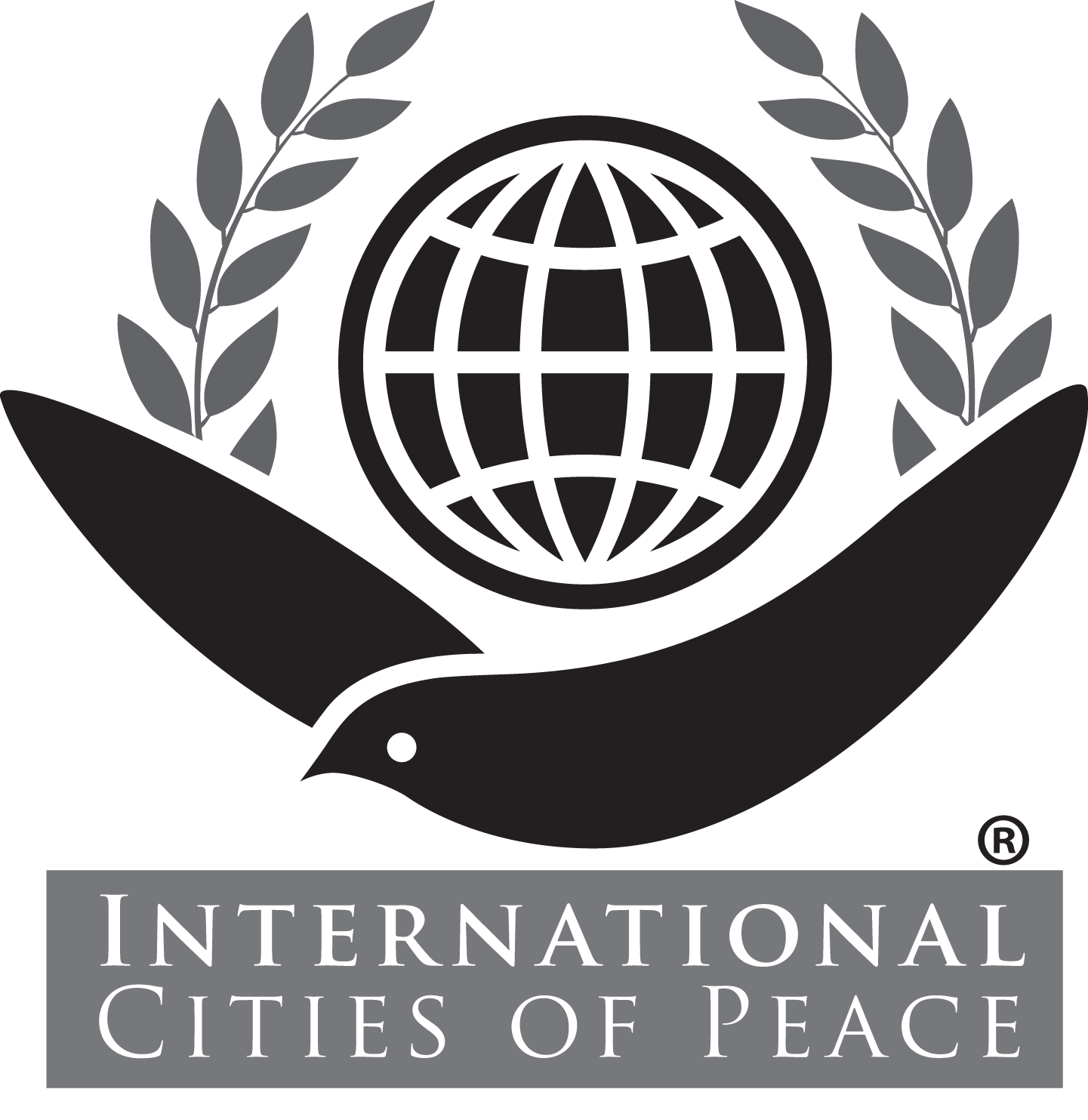| Welcome to Frederick Baguma and the African Youth Peace Initiative who have established Makindye, Uganda: City of Peace. Fredrick Baguma is the Director and Founder of the African Youth Peace Initiatives an indigenous, non-partisan organization working to empower the young people, organisations, institutions and communities through initiatives that promote a culture of non-violence, peaceful co-existence and socio-economic development in Uganda.
Note: Introduction page with information primarily at the time of joining International Cities of Peace. For updates, please contact the liaison.
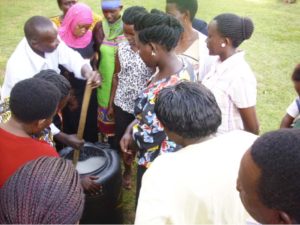
AFRICAN YOUTH PEACE INITIATIVE
African Youth Peace Initiatives was founded in February 2007 and later on officially registered with the National NGO Board in 2008 as an indigenous, non-partisan organization working to empower young people, organisations, institutions and communities through initiatives that promote a culture of non-violence, peaceful co-existence and socio-economic development in Uganda.
AYPI works towards addressing communal conflicts, intra school violent strikes especially among high schools and universities, transform gang street youth violence and riots in cities to create alternatives to violence and peaceful resolution to conflict. Address rampant incidences of domestic violence, child abuse and neglect.
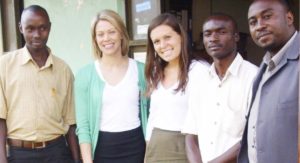
VISION:
We envision Peaceful Communities where young people are fully Empowered, Skilled and working towards the Sustainable Development of Uganda, Africa and the World at Large.
MISSION:
AYPI’s mission is to empower the young people, organizations, institutions and communities through initiatives that enhance non-violence, peace and sustainable development.
GOAL
To address the root causes of violence and its effects among communities.
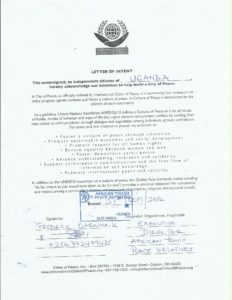
Letter of Intent
OBJECTIVES
• To equip the young people with cotemporary skills for self help and employment.
• To mobilize human, financial and other resources to support community initiatives and projects.
• To improve the welfare and living conditions of orphans and vulnerable children in schools and at household level.
• To support community project based initiatives like education, vocational and entrepreneur skills development, reproductive health, Agricultural development and Environmental Conservation.
• To research, document and disseminate information through trainings and publications on peace education, conflict prevention, management and resolution.
• To share knowledge and work experiences through networking and partnership engagements
Main Areas of Work:
• Conflict Transformation and Peace Education; AYPI addresses the root causes of violence and its effects on communities by preventing, managing and transforming conflict.
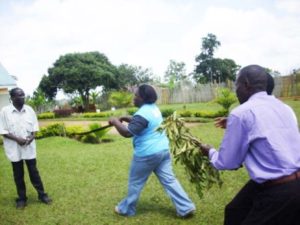
• Youth Entrepreneurship and Skills Training; AYPI works towards inspiring, mentoring and building capacity of the young people to create jobs and opportunities for employment and business towards improving on their Livelihoods through Learning practical job skills and engaging the Marginalized/vulnerable Youth to participate in Mainstream poverty Eradication projects in their communities and linking for Employment opportunities and Training.
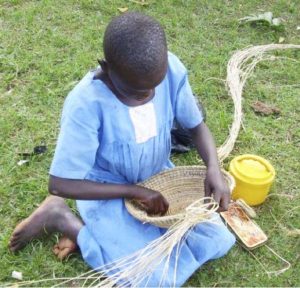
• Promoting Quality Education; Training, mentoring and supporting schools to start-up school businesses and enterprises to enable grassroots schools and vulnerable families to generate alternative income and opportunities for sustainable development.
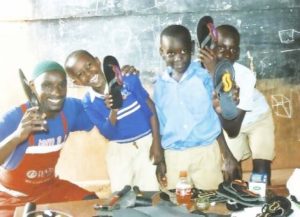
• Livelihoods Improvement and Community Development; AYPI promotes awareness and the involvement of youth in tailor made environment and climate change initiatives, health and HIV/AIDS prevention, sanitation and agriculture.
• Research, Training and Advocacy; conducting periodic trainings, research and issuing publications on topical and community issues emerging. Using the media and newsletters to create awareness and disseminate information through I.E.C materials to influence opinions and change attitudes as well as inform the public about critical issues. When people have the right information they are able to make informed and independent decisions and also participate in the development of their communities.
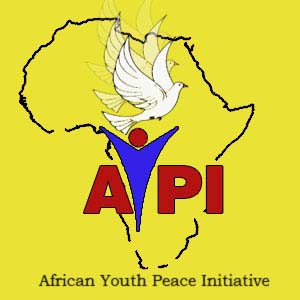
• Promotion of Democratic Governance and Human Rights Awareness & Defense
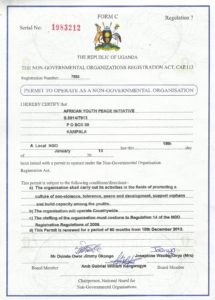
ABOUT FREDRICK BAGUMA K. SHALOM
Over the years, Frederick Bagumahas has acquired vast experience in leadership, Inspiring young people as agents of change in their communities, conflict resolution and peace building, policy advocacy, analysis and research, international relations, environmental conservation and climate change initiatives, human rights, anti-corruption and governance by working in slum communities, peri-urban communities and rural communities.
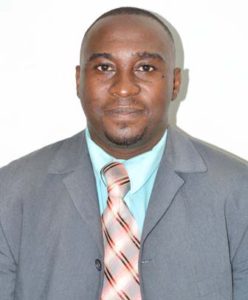
He has witnessed dramatic impact and transformation in the lives of many young people within these communities through the active work and interventions of the African Youth Peace Initiatives.
CONTACT INFO
For more information please contact:
Fredrick Baguma K. Shalom
Executive Director
African Youth Peace Initiatives
P.O. Box 89, K’la (U) – Main Post Office Building
Tel: +256772479435
Email: fredrickateenyi@gmail.com
ABOUT MAKINDYA, UGANDA (from Wikipedia)
Makindye Division is in the southeastern corner of the city, bordering Wakiso District to the south and west. The eastern boundary of the division is Murchison Bay, a part of Lake Victoria. Makindye is a peri-urban community part of Kampala and one of the five Divisions that make up Kampala Capital City.
Neighborhoods in the division include Bukasa, Buziga, Ggaba, Kabalagala, Muyenga, Katwe, Kibuli, Kibuye, Kisugu, Lukuli, Luwafu, Makindye, Munyonyo, Nsambya, Nsambya Police Barracks, Salaama and Wabigalo. It’s populated with several slums, sharing boundaries with lake Victoria the biggest inland fresh water body in East Africa.
The communities are mainly characterized by several vulnerable households and families in the slums, many young people and mainly gangs (locally known as the “Kifesi” groups) and street children living in the slums, high incidents of street violence, domestic violence, child neglect and abuse, drug and substance abuse, redundancy, unemployment and high school drop-out rates, adolescent young mothers, poor infrastructure.
Uganda, officially the Republic of Uganda, is a landlocked country in East Africa. It is bordered to the east by Kenya, to the north by South Sudan, to the west by the Democratic Republic of the Congo, to the southwest by Rwanda, and to the south by Tanzania. Uganda is the world’s second most populous landlocked country after Ethiopia. The southern part of the country includes a substantial portion of Lake Victoria, shared with Kenya and Tanzania. Uganda is in the African Great Lakes region. Uganda also lies within the Nile basin, and has a varied but generally a modified equatorial climate.
DO YOU THINK YOUR COMMUNITY CAN BE A CITY OF PEACE? SEND AN EMAIL!
Note: If information or photos used here are copyrighted, please contact us and we will immediately delete the copyrighted material.
|
